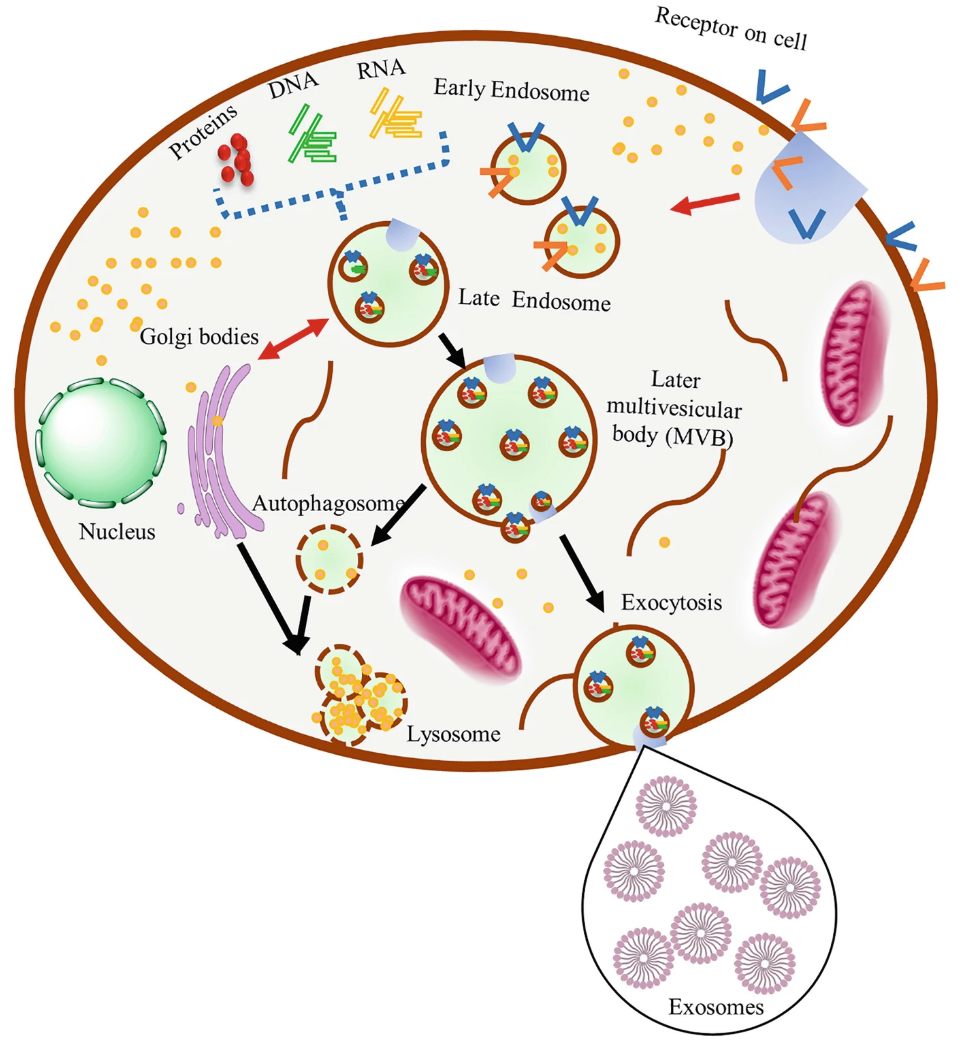Microorganism-derived Exosome Research and Applications
- Infectious Diseases: Elucidating host-pathogen interactions and designing vaccines against pathogens such as bacteria, fungi, and others.
- Drug Delivery Systems: Using microorganism-derived exosomes for RNA, siRNA, and CRISPR cargo delivery.
- Microbiome and Gut Health: Studying microbiome-host communications and developing next-generation probiotics and postbiotics.
- Cancer Immunotherapy: Harnessing microbial exosomes as natural adjuvants or delivery vehicles for tumor-associated antigens.
- Agricultural Biotechnology: Utilizing microbial exosomes to modulate plant microbiomes for crop improvement, disease resistance, and soil health.
- Environmental Applications: Monitoring microbial exosomes as biomarkers for water quality, soil contamination, and industrial microbiology.
Microorganism-derived exosomes are nanoscale extracellular vesicles naturally secreted by various microorganisms, including bacteria, fungi, yeasts, algae, archaea, and even microbial consortia. These exosomes, surrounded by a lipid bilayer membrane, encapsulate a rich cargo of proteins, lipids, nucleic acids (DNA, RNA, miRNAs), and small molecules. Microorganism-derived exosomes reflect unique microbial physiology and pathogenicity, making them essential mediators of intercellular communication within microbial populations and between microbes and host organisms. Their role in modulating host-pathogen interactions, antibiotic resistance, and microbiome homeostasis underscores their profound biological and medical significance. MtoZ Biolabs offers comprehensive Microorganism-derived Exosome Research and Applications services to support cutting-edge research and innovative therapeutic development.
Microorganism-derived exosomes are essential for regulating processes such as microbial virulence, immune system evasion, biofilm formation, and inter-microbial signaling. Furthermore, microorganism-derived exosomes are emerging as powerful tools for vaccine development, drug delivery, and biomarker discovery, particularly in the fields of infectious diseases, cancer immunotherapy, and microbiome research. However, due to their small size, heterogeneous composition, and complex biological background, isolating and characterizing high-purity, functionally active microorganism-derived exosomes remains a significant challenge, necessitating advanced technologies and standardized workflows.

Figure 1. The Process of Biogenesis of Gram-negative Bacterial Exosomes
Service at MtoZ Biolabs
MtoZ Biolabs offers an advanced platform for the isolation, characterization, and engineering of microorganism-derived exosomes to support both academic and industrial research. Utilizing cutting-edge techniques such as differential ultracentrifugation, size-exclusion chromatography (SEC), microfluidics technology, and affinity-based methods, we ensure high-yield, high-purity exosome isolation from diverse microbial sources. Comprehensive characterization is performed using transmission electron microscopy (TEM) and nanoparticle tracking analysis (NTA) for morphology and size; flow cytometry, Western blot, and mass spectrometry for surface markers; and LC-MS/MS-based proteomics, lipidomics, metabolomics, and RNA sequencing for detailed cargo analysis. Additionally, our exosome engineering services enable drug loading, nucleic acid encapsulation, and surface modification, offering customized solutions for Microorganism-derived Exosome Research and Applications. Free project evaluation, welcome to learn more details!
Analysis Workflow
1. Microbial Culture
Customized culture conditions for bacteria, fungi, yeasts, and other microorganisms to maximize exosome yield.
2. Exosome Isolation and Purification
Application of ultracentrifugation, SEC, and affinity chromatography tailored to microbial exosome profiles.
3. Exosome Characterization and Quality Control
TEM, NTA, flow cytometry, and mass spectrometry-based omics analyses to ensure purity, composition, and biological integrity.
4. Cargo Profiling
Deep analysis of exosomal proteins, lipids, RNA (miRNA, mRNA, lncRNA, circRNA), and metabolites to uncover functional molecules.
5. Functional and Engineering Services
Surface modification, cargo loading (therapeutic molecules, RNA), and in vitro/in vivo function evaluation.
Why Choose MtoZ Biolabs?
☑️High-purity microbial exosome isolation with minimal contamination.
☑️Tailored workflows for various microbial species and research purposes.
☑️Experienced team providing expert technical support.
☑️Clear, one-time pricing with fast and reliable service delivery.
Applications
Microorganism-derived exosomes research are gaining broad applications across multiple sectors:
FAQ
Q1: How can microorganism-derived exosomes be applied in therapeutic development?
Microorganism-derived exosomes can serve as natural nanocarriers for therapeutic molecules, including antimicrobial agents, nucleic acids, and proteins. Their intrinsic ability to modulate host immune responses makes them valuable for vaccine delivery, immunotherapy, and microbiome-based treatments. Engineered microbial exosomes can be tailored for targeted drug delivery, enhancing therapeutic efficacy and specificity while minimizing off-target effects.
Q2: How do microbial exosomes contribute to host-pathogen interactions?
Microbial exosomes play pivotal roles in modulating host immunity and pathogenesis by transporting virulence factors, regulatory RNAs, and immune modulators across cellular barriers. They can promote pathogen survival and immune evasion by delivering toxins or interfering with host signaling pathways. Conversely, they may also enhance innate immune responses by presenting pathogen-derived antigens to immune cells, thus influencing disease progression, microbial coexistence, and host defense strategies.
How to order?







